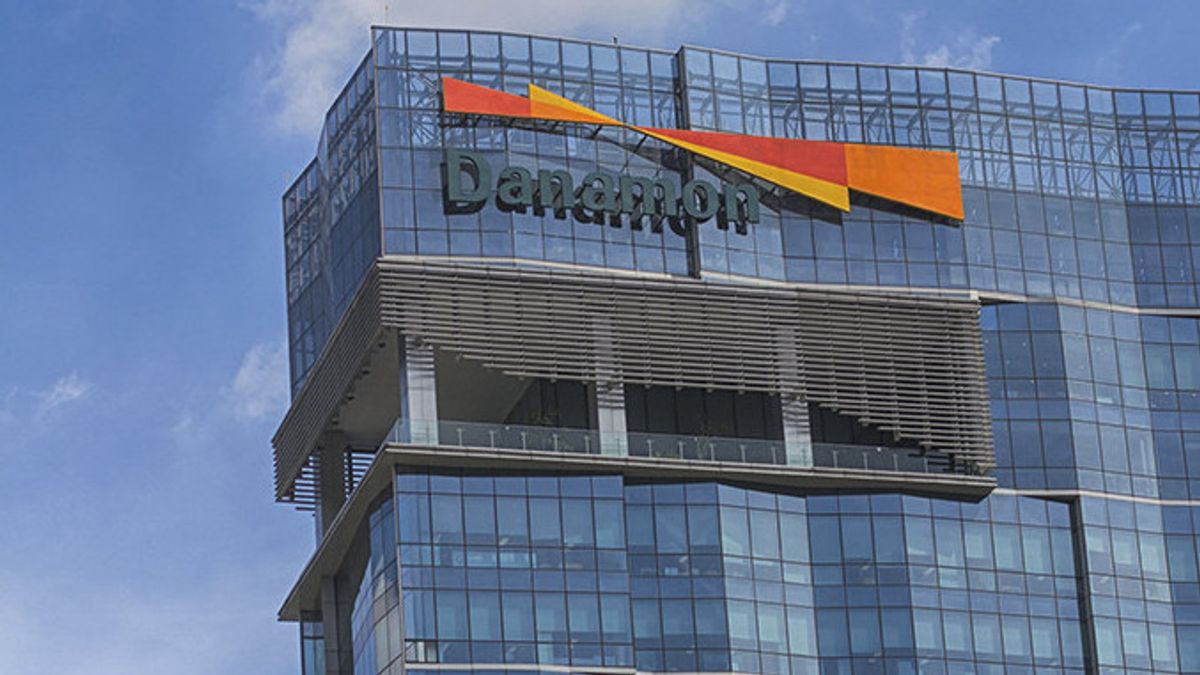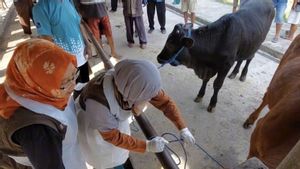JAKARTA - PT Bank Danamon Indonesia Compliance Director Rita Mirasari said that since the beginning of the pandemic the management has carried out special monitoring through the Danamon Crisis Command Center (CCC) with the aim of prioritizing the health and safety of employees and their families.
This statement also denies the results of the LaporCovid-19 survey which revealed that 79 percent of sales staff admitted that they were obliged to enter the office and management raised the target to 65 percent. In fact, 67 percent of non-sales employees are required to enter the office. Then, 80 percent claimed to be asked to make visits to customers' homes.
"Employee safety and health is Danamon's top priority," he said when contacted by VOI, Monday,
Rita said, in implementing the Work from Home (WFH) and Work from Office (WFO) regulations, Danamon followed the regulations from the Instruction of the Minister of Home Affairs (Inmendagri) Number 15 of 2021 and Number 23 of 2021 as well as following local government regulations.
"On several occasions, Danamon has also taken more conservative steps when deemed necessary in adjusting to employee safety and health conditions," he said.
Not only that, said Rita, Danamon also launched the D-Care application, in which all Danamon employees are required to fill out daily surveys to provide information on the health and environmental conditions of employees.
"This aims to monitor the condition of employees and can act more dynamically and swiftly in providing health assistance," he said.
Meanwhile, an employee of Bank Danamon named Ani Quemmy said that the Bank Danamon branch office where he works applies WFH. In fact, the branch staff who work in the office are even less likely to drink.
"I am an employee of the Danamon branch office. I am not allowed to visit customers. Discount target is 50 percent, certain grades get pandemic assistance. Employees are given KN95 masks and vitamins. (The office) also carries out very strict prokes both between employees and to customers. Then there is no pay cut," he said.
Previously, LaporCovid-19 reported findings of violations of health protocols in offices, especially in the banking sector. The fate of bank employees during Emergency PPKM is not good. Because in the midst of high cases of COVID-19, bank employees, especially sales, are still required to work from the office or work from office (WFO) every day.
LaporCovid-19 volunteer Yemiko Happy said banking itself is indeed an essential sector. However, the problem is that staff are still asked to make visits to customers' homes.
Not only that, said Yemiko, in the midst of implementing Emergency PPKM, the banking sector actually increased the target for sales staff who went to the field.
"Sales staff are still required by WFO, and even still make visits to customers' homes. Not to mention the majority of those surveyed admit that there has been an increase in their sales target," he said in a virtual press conference, Thursday, July 22.
Yemiko said, this finding was obtained based on a survey conducted by LaporCovid-19 on 734 banking workers in 15 cities in Indonesia. Most of the survey participants came from Jakarta, Bandung, and Surabaya.
There are about 58 percent of bank sales employees who take part in this survey, the rest are non-sales staff. They come from 20 banks operating in Indonesia, ranging from Permata Bank, Maybank Indonesia, Bank Mandiri, OCBC NISP, Bank Danamon, and others.
Of all bank sales employees who took part in the survey, 79 percent said they were still required to enter the office in full, then 80 percent said they were asked to make visits to customers' homes. Then, 65 percent said they had increased their target.
Meanwhile, for non-sales employees, 67 percent of them are required to still enter the office. But the problem is, reports of violations of health protocols arise at the bank office.
"Both sales and non-sales work in the midst of poor air circulation. They are even obliged to work even though there are positive ones. The staff admits that their superiors are not transparent about COVID-19 information at the bank," he said.
The English, Chinese, Japanese, Arabic, and French versions are automatically generated by the AI. So there may still be inaccuracies in translating, please always see Indonesian as our main language. (system supported by DigitalSiber.id)













